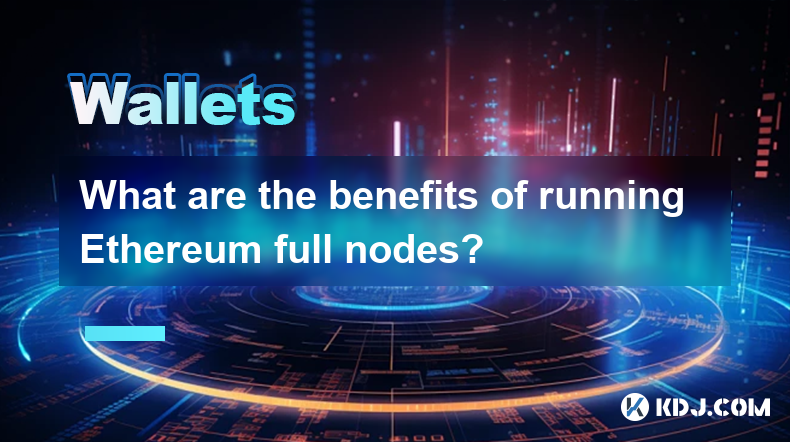-
 Bitcoin
Bitcoin $102,704.6875
5.91% -
 Ethereum
Ethereum $2,198.7835
21.30% -
 Tether USDt
Tether USDt $0.9999
-0.02% -
 XRP
XRP $2.3086
8.73% -
 BNB
BNB $625.6336
3.94% -
 Solana
Solana $162.7575
10.41% -
 USDC
USDC $0.9999
-0.01% -
 Dogecoin
Dogecoin $0.1955
13.57% -
 Cardano
Cardano $0.7610
13.34% -
 TRON
TRON $0.2567
3.03% -
 Sui
Sui $4.0058
20.22% -
 Chainlink
Chainlink $15.7760
13.86% -
 Avalanche
Avalanche $22.2168
13.68% -
 Stellar
Stellar $0.2910
11.97% -
 Shiba Inu
Shiba Inu $0.0...01424
11.63% -
 Bitcoin Cash
Bitcoin Cash $417.0051
8.54% -
 Hedera
Hedera $0.1942
10.75% -
 UNUS SED LEO
UNUS SED LEO $8.8439
0.31% -
 Toncoin
Toncoin $3.1932
6.20% -
 Hyperliquid
Hyperliquid $23.0307
9.69% -
 Litecoin
Litecoin $94.2072
4.28% -
 Polkadot
Polkadot $4.4476
11.80% -
 Monero
Monero $297.2932
5.57% -
 Dai
Dai $1.0001
0.00% -
 Bitget Token
Bitget Token $4.4919
6.24% -
 Ethena USDe
Ethena USDe $0.9999
-0.08% -
 Pi
Pi $0.6721
14.17% -
 Pepe
Pepe $0.0...01099
33.37% -
 Uniswap
Uniswap $6.0416
24.48% -
 Bittensor
Bittensor $423.2384
15.83%
What are the benefits of running Ethereum full nodes?
Running a full Ethereum node enhances security and privacy by verifying transactions directly against the blockchain, ensuring the integrity of the network and protecting users' funds.
Feb 21, 2025 at 02:07 am

Key Points:
- Enhanced security and privacy
- Reduced reliance on third-party services
- Improved network contribution
- Potential earning opportunities through ETH staking and node validation
- Support for blockchain development and innovation
Benefits of Running Ethereum Full Nodes:
1. Enhanced Security and Privacy:
Running a full node is essential for maintaining the security and privacy of the Ethereum network by verifying every block and transaction in real-time. By checking each transaction against the blockchain, full nodes ensure that no malicious activity or double-spending occurs. This direct connection to the Ethereum network gives users complete control over their funds and protects them from potential fraud or hacks.
2. Reduced Reliance on Third-Party Services:
Full nodes eliminate the need for users to trust external entities or services for data integrity. By downloading the entire blockchain locally, each full node contains a complete record of every transaction ever made on the Ethereum network. This removes the risks associated with relying on third-party services, such as blockchain explorers or exchange platforms, which may have vulnerabilities or engage in data manipulation.
3. Improved Network Contribution:
Running a full node actively contributes to the resilience and decentralization of the Ethereum network. By hosting a copy of the blockchain, full nodes validate and propagate new blocks, helping to ensure the network remains secure and efficient. This participation strengthens the network's overall security and prevents malicious actors from disrupting its operations.
4. Potential Earning Opportunities:
Full node operators can participate in ETH staking and node validation services, which offer potential earning opportunities. ETH staking requires users to lock up a certain amount of ETH in a smart contract to support the network's security. In return, stakers earn rewards for validating transactions and creating new blocks. Additionally, full node operators can provide their services to other users, such as wallet providers or block explorers, and charge a fee for access to their blockchain data.
5. Support for Blockchain Development and Innovation:
Running a full node is crucial for developers and researchers who seek to contribute to the Ethereum ecosystem and innovate on its platform. Full nodes provide direct access to the underlying blockchain data, allowing developers to test and deploy smart contracts, create new applications, and conduct in-depth research on network behavior. By participating in the full node community, developers contribute to the advancement of Ethereum technology.
FAQs:
1. Who should consider running an Ethereum full node?
Anyone who values security, privacy, network contribution, or potential earning opportunities is encouraged to consider running an Ethereum full node.
2. What hardware requirements are necessary to run a full node?
Running a full node requires a computer with a solid-state drive (SSD) with at least 1TB of storage, at least 16GB of RAM, and a stable internet connection.
3. How long does it take to sync an Ethereum full node?
The time required to sync a full node varies depending on the internet speed and hardware used. However, it typically takes several days to download and verify the entire blockchain.
4. Can I run a full node on a Raspberry Pi?
Yes, it is possible to run a full node on a Raspberry Pi, but it will take significantly longer to sync due to its limited hardware capabilities.
5. What are the risks of running a full node?
There are minimal risks associated with running a full node, but it can be computationally intensive and require ongoing storage and bandwidth. Additionally, validators who participate in ETH staking face the risk of losing funds if their node is found to be misbehaving.
Disclaimer:info@kdj.com
The information provided is not trading advice. kdj.com does not assume any responsibility for any investments made based on the information provided in this article. Cryptocurrencies are highly volatile and it is highly recommended that you invest with caution after thorough research!
If you believe that the content used on this website infringes your copyright, please contact us immediately (info@kdj.com) and we will delete it promptly.
- As data reveals deep inequality among TRUMP coin holders, Anthony Scaramucci warns of potential corruption linked to Donald Trump's crypto activity.
- 2025-05-09 08:05:13
- The United States Senate has failed to advance the GENIUS Act
- 2025-05-09 08:05:13
- As Bitcoin Struggles to Hold Momentum, a New Ethereum-Based Token That Mirrors BTC's Trajectory Is Gaining Traction
- 2025-05-09 08:00:25
- The Casino Review Expert Team Ranks JACKBIT Among The Best Online Casinos For 2025
- 2025-05-09 08:00:25
- Ethereum (ETH) is now highly devalued compared to Bitcoin, the first time since 2019.
- 2025-05-09 07:55:14
- ONE Gas Inc. Announces Public Offering of 2.5 Million Shares of Common Stock
- 2025-05-09 07:55:14
Related knowledge

How to generate a new address with Trezor Model T? Is there an upper limit?
May 09,2025 at 07:36am
Introduction to Trezor Model TThe Trezor Model T is a highly respected hardware wallet in the cryptocurrency community, known for its robust security features and user-friendly interface. It supports a wide range of cryptocurrencies and allows users to manage their digital assets securely. One of the essential functions of any hardware wallet is the abi...

How to receive Ethereum with Trezor Model T? Where is the address?
May 09,2025 at 06:28am
Receiving Ethereum with a Trezor Model T involves a few straightforward steps that ensure your transactions are secure and your private keys are protected. The Trezor Model T is a popular hardware wallet that supports Ethereum and a variety of other cryptocurrencies. Let's explore how you can receive Ethereum on this device and locate your Ethereum addr...

How to set the PIN code of Trezor Model T? Can it be changed?
May 09,2025 at 07:29am
Setting up and managing the PIN code on your Trezor Model T is an essential aspect of securing your cryptocurrency. The PIN code acts as a primary layer of security, ensuring that only you can access your funds. In this article, we will guide you through the process of setting up your initial PIN code and changing it if necessary. We will also discuss t...

What currencies does Trezor Model T support? How to add them?
May 08,2025 at 08:42pm
The Trezor Model T is a popular hardware wallet that supports a wide range of cryptocurrencies, making it a versatile choice for crypto enthusiasts. In this article, we will explore the various currencies supported by the Trezor Model T and provide a detailed guide on how to add them to your wallet. Supported Currencies on Trezor Model TThe Trezor Model...

Does Exodus support DeFi? How to connect to the application?
May 08,2025 at 07:35pm
Does Exodus support DeFi? How to connect to the application? Exodus is a popular multi-asset cryptocurrency wallet that has garnered attention for its user-friendly interface and wide range of supported cryptocurrencies. One of the frequently asked questions by users is whether Exodus supports decentralized finance (DeFi) applications and how to connect...

What if the Exodus wallet is lost? Can the assets be restored?
May 09,2025 at 03:29am
Losing a cryptocurrency wallet can be a stressful experience, especially when it comes to a widely used platform like the Exodus wallet. Fortunately, there are several methods to potentially restore your assets if you lose access to your Exodus wallet. This article will explore the various steps and precautions you can take to recover your lost assets. ...

How to generate a new address with Trezor Model T? Is there an upper limit?
May 09,2025 at 07:36am
Introduction to Trezor Model TThe Trezor Model T is a highly respected hardware wallet in the cryptocurrency community, known for its robust security features and user-friendly interface. It supports a wide range of cryptocurrencies and allows users to manage their digital assets securely. One of the essential functions of any hardware wallet is the abi...

How to receive Ethereum with Trezor Model T? Where is the address?
May 09,2025 at 06:28am
Receiving Ethereum with a Trezor Model T involves a few straightforward steps that ensure your transactions are secure and your private keys are protected. The Trezor Model T is a popular hardware wallet that supports Ethereum and a variety of other cryptocurrencies. Let's explore how you can receive Ethereum on this device and locate your Ethereum addr...

How to set the PIN code of Trezor Model T? Can it be changed?
May 09,2025 at 07:29am
Setting up and managing the PIN code on your Trezor Model T is an essential aspect of securing your cryptocurrency. The PIN code acts as a primary layer of security, ensuring that only you can access your funds. In this article, we will guide you through the process of setting up your initial PIN code and changing it if necessary. We will also discuss t...

What currencies does Trezor Model T support? How to add them?
May 08,2025 at 08:42pm
The Trezor Model T is a popular hardware wallet that supports a wide range of cryptocurrencies, making it a versatile choice for crypto enthusiasts. In this article, we will explore the various currencies supported by the Trezor Model T and provide a detailed guide on how to add them to your wallet. Supported Currencies on Trezor Model TThe Trezor Model...

Does Exodus support DeFi? How to connect to the application?
May 08,2025 at 07:35pm
Does Exodus support DeFi? How to connect to the application? Exodus is a popular multi-asset cryptocurrency wallet that has garnered attention for its user-friendly interface and wide range of supported cryptocurrencies. One of the frequently asked questions by users is whether Exodus supports decentralized finance (DeFi) applications and how to connect...

What if the Exodus wallet is lost? Can the assets be restored?
May 09,2025 at 03:29am
Losing a cryptocurrency wallet can be a stressful experience, especially when it comes to a widely used platform like the Exodus wallet. Fortunately, there are several methods to potentially restore your assets if you lose access to your Exodus wallet. This article will explore the various steps and precautions you can take to recover your lost assets. ...
See all articles





















































































